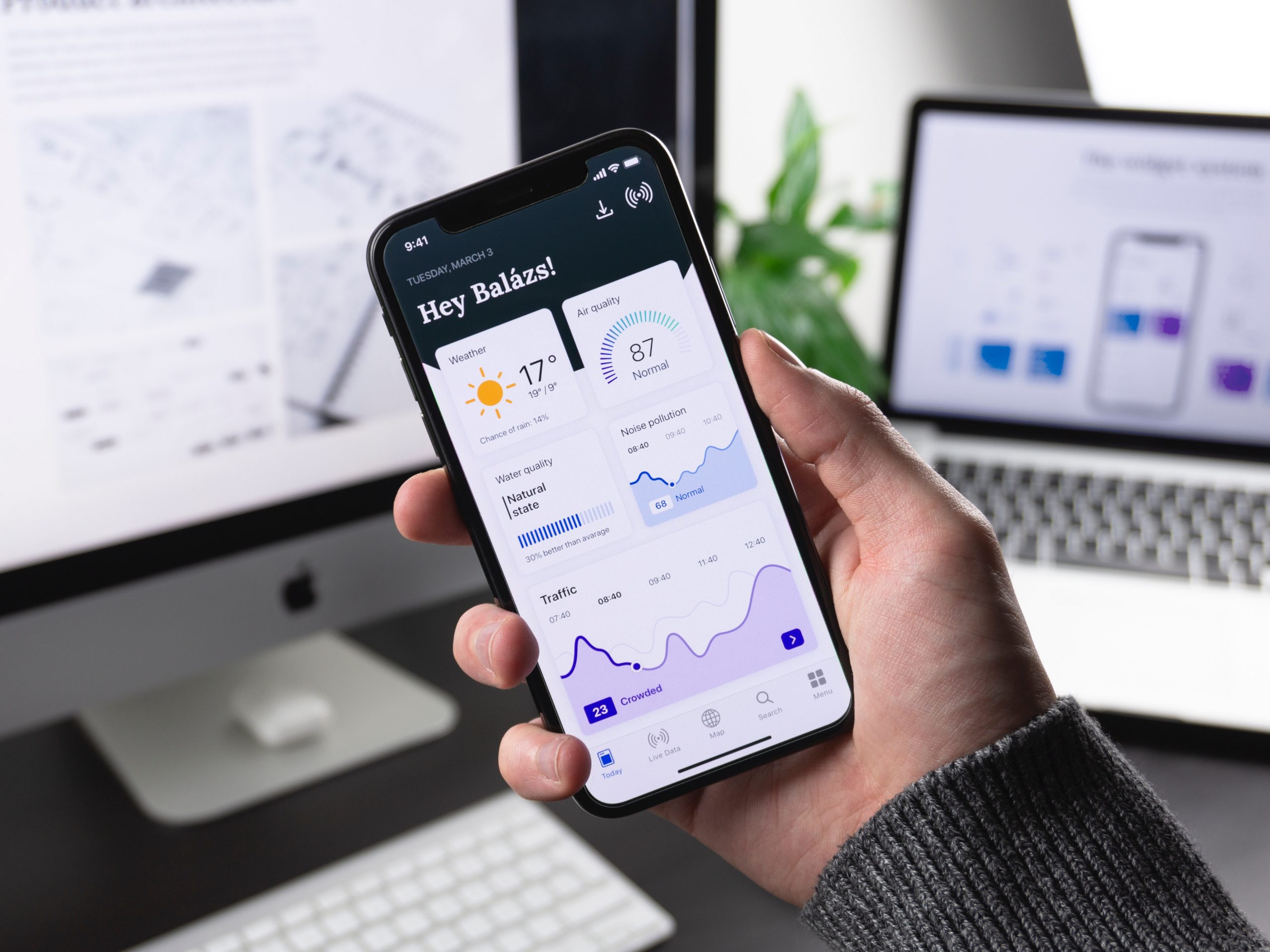In today’s digital age, technology plays a crucial role in every industry, including healthcare. Hospital and clinic management apps have revolutionized the way medical institutions operate, making processes more efficient and patient care more streamlined. However, developing an app of this magnitude involves careful planning, execution, and significant financial investment. In this article, we will explore the various factors that influence the cost of developing a hospital and clinic management app, as well as ways to reduce these costs. We at WeSoftYou, a software development company with a proven track record, have extensive expertise in creating robust and user-friendly healthcare applications.
Understanding the Basics of Hospital and Clinic Management Apps
Hospital and clinic management apps are comprehensive software solutions designed to simplify and automate administrative tasks within healthcare facilities. These apps offer a range of features that facilitate efficient scheduling, patient registration, electronic medical record management, billing, inventory management, and much more. Such apps are indispensable tools for hospitals and clinics as they streamline operations, reduce errors, and improve overall productivity.
When it comes to managing a healthcare facility, there are numerous challenges that administrators and medical staff face on a daily basis. From coordinating patient appointments to keeping track of medical records, the workload can be overwhelming. This is where hospital and clinic management apps come in, providing a centralized platform that integrates various functions and streamlines the workflow.
Key Features of a Management App

A well-developed hospital and clinic management app should include key features such as:
- Appointment scheduling
- Patient registration and tracking
- Electronic health records management
- Integrated billing and payment processing
- Laboratory and pharmacy management
- Inventory management
- Reporting and analytics
These features contribute to an efficient and organized workflow, enabling medical staff to provide better patient care and improve overall operational efficiency. Let’s take a closer look at some of these features:
Appointment scheduling: With the help of a management app, healthcare facilities can easily manage and schedule patient appointments. The app can provide real-time availability of doctors and resources, allowing for efficient allocation of time and resources.
Patient registration and tracking: The app simplifies the patient registration process by digitizing the paperwork and capturing essential information electronically. This not only saves time but also reduces the chances of errors and misplaced documents. Additionally, the app can track patient visits, medical history, and treatment plans, ensuring seamless continuity of care.
Electronic health records management: Gone are the days of paper-based medical records. A management app allows healthcare providers to store and manage patient records electronically. This not only saves physical space but also makes it easier to access and share information securely. The app can also generate reports and analytics based on the data, providing valuable insights for decision-making.
Integrated billing and payment processing: Managing billing and payments can be a complex task for healthcare facilities. A management app simplifies this process by integrating billing and payment processing, ensuring accurate and timely invoicing. This not only improves financial management but also enhances the patient experience by providing convenient payment options.
Laboratory and pharmacy management: In a healthcare facility, managing laboratory tests and pharmacy inventory is crucial. A management app can help streamline these processes by automating test requests, tracking results, and managing inventory levels. This ensures efficient utilization of resources and reduces the chances of errors or delays.
Reporting and analytics: Data is a valuable asset in healthcare. A management app can generate comprehensive reports and analytics based on various parameters, such as patient demographics, treatment outcomes, and resource utilization. These insights can help administrators make informed decisions, identify areas for improvement, and optimize resource allocation.
Importance of a Well-Developed App in Healthcare
From our experience, a well-developed hospital and clinic management app is a critical asset for healthcare institutions. These apps not only streamline operations but also enhance patient experience and safety. By automating manual processes and reducing paperwork, healthcare providers can devote more time to patient care instead of administrative tasks. Moreover, these apps help eliminate errors in data entry and ensure accurate medical recording, reducing the risk of medical mistakes.
Additionally, hospital and clinic management apps enable seamless communication and collaboration between healthcare professionals, facilitating efficient decision-making and coordinated care delivery. With features like secure messaging and shared access to patient records, medical staff can easily communicate and collaborate, ensuring that everyone is on the same page when it comes to patient care.
In conclusion, hospital and clinic management apps are powerful tools that revolutionize the way healthcare facilities operate. By automating administrative tasks, improving communication, and providing valuable insights, these apps contribute to better patient care, increased efficiency, and improved overall productivity.
Factors Influencing the Cost of App Development
Developing a hospital and clinic management app involves a range of factors that influence the overall cost. These factors need to be carefully considered before embarking on the development process.
When it comes to app development, there are several key factors that can significantly impact the cost. Let’s take a closer look at some of these factors:
Complexity of the App
The complexity of the app is a major determinant of the development cost. The more features and functionalities the app possesses, the more time and effort it will take to build and test. Complex features such as artificial intelligence algorithms for diagnostics or integration with external systems like medical devices may increase the overall cost as specialized expertise is required.
For instance, if the hospital and clinic management app requires advanced features like real-time patient monitoring, appointment scheduling, electronic health records, and secure messaging, it will involve a higher level of complexity and, consequently, a higher development cost.
Choice of Platform: iOS vs Android
Another factor that affects the cost of development is the choice of platform. Developing apps for iOS and Android requires different skill sets and tools. While Android apps tend to have a larger target audience, iOS apps are known for their higher user engagement and spending. The cost of development may vary depending on the platform chosen, as additional resources are needed for cross-platform development or maintaining separate codebases for each platform.
It’s important to consider the target audience and their preferences when deciding on the platform. If the majority of the hospital’s patients and staff use iOS devices, it may be more cost-effective to focus on developing an iOS app initially and then expand to Android later.
Geographic Location of the Development Team
The geographic location of the development team also impacts the cost of app development. Development rates vary significantly across different countries and regions. Hiring a development team from regions like Eastern Europe or Asia can often lead to significant cost savings without compromising on quality. WeSoftYou, with its diverse and skilled development team located in different parts of the world, offers cost-effective solutions tailored to your specific needs.
By choosing a development team located in a region with lower labor costs, you can potentially reduce the overall development cost while still ensuring high-quality work. This can be particularly beneficial for healthcare organizations operating on a tight budget.
Furthermore, working with a globally distributed team like WeSoftYou can provide additional advantages, such as round-the-clock development and support, thanks to the different time zones in which their team members are located.
As you can see, there are various factors that influence the cost of app development for hospital and clinic management. It’s essential to carefully consider these factors and make informed decisions to ensure the successful and cost-effective development of your app.
Breakdown of Development Costs
Now let’s delve into the different aspects that contribute to the overall cost of developing a hospital and clinic management app.
Developing a hospital and clinic management app involves several key components that require careful consideration and expertise. In addition to the design and user interface, the backend development and testing are vital aspects that contribute to the overall cost of the project.
Design and User Interface Costs
The design and user interface are vital components of any app. A visually appealing and user-friendly design enhances the overall user experience. Developing a compelling design requires the expertise of graphic designers and UX/UI specialists.
These professionals work together to create wireframes, visual mockups, and interactive prototypes, ensuring that the app’s design meets the expectations of both healthcare professionals and patients. They carefully consider the color scheme, typography, and layout to create a visually pleasing and intuitive interface.
Furthermore, the design process involves conducting user research and usability testing to gather feedback and make iterative improvements. This iterative design approach ensures that the final design is optimized for user engagement and satisfaction.
Backend Development Costs
Backend development includes building the server-side infrastructure, data management systems, and APIs that enable the app to communicate and exchange data securely. It involves database design, server setup, and logic implementation.
The complexity of the backend depends on the specific requirements of the app. For a hospital and clinic management app, it may involve integrating with existing hospital systems, such as electronic health record (EHR) systems, appointment scheduling systems, and billing systems. This integration requires careful planning and development to ensure seamless data flow and interoperability.
In addition, security is a critical aspect of backend development. Measures such as encryption of sensitive data, user authentication, and access control need to be implemented to protect patient information and comply with healthcare data privacy regulations.
Testing and Quality Assurance Costs
Thorough testing and quality assurance are crucial to ensure that the app functions flawlessly and meets the highest standards of performance, security, and user experience.
During the testing phase, various types of testing are conducted to identify and address any issues or bugs. Functional testing ensures that all features and functionalities of the app work as intended. Integration testing verifies the seamless integration of different components and systems. Performance testing assesses the app’s response time and scalability under different loads. Security testing aims to identify vulnerabilities and ensure data protection.
The cost of testing depends on the complexity of the app and the level of testing required. Rigorous testing and quality assurance help minimize the risk of errors and ensure a smooth user experience, ultimately contributing to the success of the hospital and clinic management app.
Ongoing Costs After Development
Developing the app is only the first step. Ongoing costs are associated with maintaining and updating the app to ensure its longevity and optimal performance.
When it comes to maintaining and updating the app, there are several factors to consider. Regular maintenance is essential to keep the app secure, compatible with the latest operating system updates, and to fix any bugs or issues that may arise. This includes server maintenance, database management, and periodic updates to incorporate new features or address user feedback. By planning for ongoing maintenance costs, you can ensure the app remains functional and up-to-date.
However, maintenance and updates are not the only ongoing costs to consider. Marketing and promoting the app is crucial to attract users and generate awareness. This may involve creating a website for the app, implementing search engine optimization (SEO) strategies, and leveraging various digital marketing channels to reach the target audience. Allocating a budget for marketing and promotion activities should be factored into the overall cost of app development.
In addition to marketing, providing user support and training is essential for successful implementation and adoption of the app. This is particularly important for healthcare professionals and staff who will be using the app. It includes preparing user manuals, conducting training sessions, and having a dedicated support team to address any queries or issues that users may encounter. By factoring in the cost of providing ongoing user support and training, you can ensure the app’s effective utilization.
Furthermore, ongoing costs may also include regular updates to comply with changing regulations or industry standards. Staying up-to-date with the latest requirements is crucial to ensure the app remains compliant and meets the necessary standards.
It is important to consider these ongoing costs when budgeting for app development. By planning ahead and accounting for maintenance, marketing, user support, and regulatory compliance, you can ensure the long-term success and sustainability of your app.
Ways to Reduce App Development Costs
Developing a comprehensive hospital and clinic management app can be a significant investment. However, there are ways to optimize costs without compromising on quality. By implementing the following strategies, you can effectively reduce app development costs:
Pre-Development Planning
Thoroughly planning the app’s development process before commencing can save both time and money. It is crucial to clearly define the app’s requirements, features, and target audience. By conducting a thorough analysis of the competitors’ apps, you can identify the key differentiators and outline the app’s monetization strategy. A well-defined plan reduces the risk of scope creep, enables efficient resource allocation, and minimizes unnecessary expenses.
During the pre-development planning phase, it is essential to consider factors such as user experience, scalability, and security. By carefully evaluating these aspects, you can ensure that the app meets the needs of both healthcare professionals and patients. Additionally, conducting user research and testing can help identify potential issues early on, saving both time and money in the long run.
Outsourcing vs In-house Development
Deciding between outsourcing the app development or having an in-house team is a critical consideration. Outsourcing app development to a reputable software development company like WeSoftYou can significantly reduce development costs. With a globally distributed team of professionals, WeSoftYou can deliver high-quality results at competitive rates while providing ongoing support and maintenance.
Outsourcing app development offers several advantages. Firstly, it eliminates the need to hire and maintain an in-house development team, saving costs associated with salaries, benefits, and infrastructure. Additionally, outsourcing allows you to tap into the expertise and experience of specialized developers who have worked on similar projects in the healthcare industry. This expertise can help streamline the development process and ensure the app’s success.
Utilizing Open Source Resources
Open source resources can help reduce development costs by providing ready-to-use software components and libraries. WeSoftYou leverages its expertise in open source technologies to build scalable, cost-effective, and secure solutions. By utilizing open source resources, you can save on development time and costs without compromising on quality.
Open source technologies offer a wide range of benefits. They provide access to a vast community of developers who contribute to the improvement and maintenance of the software components. This collaborative approach ensures that the components are constantly updated, secure, and reliable. Moreover, open source resources often come with extensive documentation and community support, making it easier for developers to integrate them into the app.
When utilizing open source resources, it is crucial to ensure compliance with licensing requirements and to stay updated with any security patches or updates released by the community. By actively participating in the open source community, you can contribute to the improvement of the resources and benefit from the collective knowledge and expertise of the community.
In conclusion, reducing app development costs without compromising on quality requires careful planning, considering outsourcing options, and utilizing open source resources. By implementing these strategies, you can create a comprehensive hospital and clinic management app that meets the needs of healthcare professionals and patients while optimizing costs.
Conclusion: Is It Worth the Investment?
In conclusion, developing a hospital and clinic management app is a substantial investment that yields significant benefits for healthcare institutions. The cost of developing such an app varies depending on factors such as complexity, platform choice, and geographic location. WeSoftYou, with its expertise in software development, can help you navigate the complexities of app development, providing tailor-made solutions that meet your unique requirements.
From our robust experience, we understand the importance of efficient hospital and clinic management, and we are committed to delivering cost-effective, reliable, and user-friendly apps that enhance patient care and streamline operations. To learn more about how WeSoftYou can assist you in developing a hospital and clinic management app or to schedule a free consultation or project estimation, reach out to us today.
FAQ
The development timeline can vary depending on the app’s complexity, requirements, and available resources. On average, it may take approximately 4-8 months to develop a fully functional hospital and clinic management app.
During the development process, our team of experienced developers will meticulously analyze your specific requirements and design a comprehensive plan to ensure the app meets your expectations. We will take into account factors such as user interface design, database integration, and system compatibility to create a seamless user experience.
Additionally, we understand the importance of adhering to strict timelines in the healthcare industry. We strive to deliver your app within the agreed-upon timeframe, ensuring that you can start benefiting from its features as soon as possible.
We prioritize security and implement robust measures to protect patient data. This includes encryption protocols, secure communication channels, user authentication, and compliance with data protection regulations such as HIPAA, GDPR, and CCPA.
Our team of security experts works diligently to ensure that your app is equipped with the latest security technologies and follows industry best practices. We employ advanced encryption algorithms to safeguard sensitive patient information, preventing unauthorized access and ensuring confidentiality.
In addition to technical measures, we also conduct regular security audits and penetration testing to identify and address any vulnerabilities in the app. This proactive approach helps us stay one step ahead of potential threats and ensures the utmost protection for your patients’ data.
Absolutely. We work closely with our clients to understand their specific needs and requirements. Our team of experts will tailor the app’s features, functionalities, and design to align with your unique goals and objectives.
Whether you need specific modules for appointment scheduling, electronic health records management, or inventory tracking, we have the expertise to develop custom solutions that meet your exact specifications. Our developers are skilled in various programming languages and frameworks, allowing us to create a highly customized app that caters to your unique workflow.
Furthermore, we understand that healthcare organizations differ in their processes and workflows. Our team will conduct in-depth consultations with your staff to gain a comprehensive understanding of your operations, enabling us to design an app that seamlessly integrates with your existing systems and enhances efficiency.
Ready to revolutionize your hospital or clinic management? Contact WeSoftYou today for a free consultation or project estimation, and let our expertise transform your healthcare workflow.
At WeSoftYou, we are committed to delivering innovative solutions that empower healthcare providers to streamline their operations and improve patient care. With our extensive experience in developing hospital and clinic management apps, we have helped numerous organizations achieve their digital transformation goals.







![How to Develop a GPS Navigation App: [Citymapper & Waze Cases Included], image #9 - WeSoftYou How to Develop a GPS Navigation App: [Citymapper & Waze Cases Included], image #9](https://wesoftyou.com/wp-content/uploads/2023/07/pexels-samson-katt-5226497-scaled.jpg)














